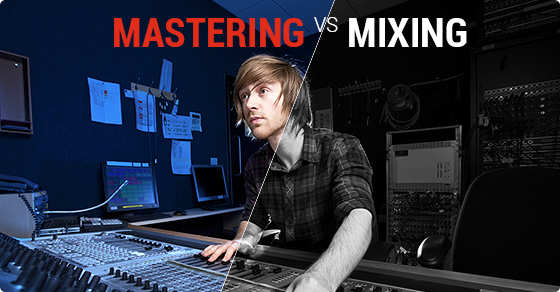This question gets asked a lot because many new musicians think mastering can solve any problems they might have with the recording or the mix. This is unfortunately not true. You do need to master if you want a professional sounding track, but mastering can’t do much for you if it’s not built off a good recording and mix.

If you’re confused by the two, here’s a little explanation to help you see the difference:
Mixing
Mixing lets a sound engineer work with different tracks and layers as separate audio recordings. For example, during the recording of the song a drum kit will often have at least one microphone on each drum besides the ambient mics, which capture the sound of the drums in the recording room. Each one of these mics is recorded on its own track in the computer or on tape. When the engineer balances and equalizes the different tracks of the kit together, this is called mixing. Once the drums are sounding the way the engineer would like, he or she then adds the other tracks to the mix like the bass, guitars and vocals. They may choose to throw on individual effects for different instruments, like adding reverb to the vocal while leaving the drums alone.
A good mix takes time and experience. The engineer needs to get the balance just right because after the mix stage, it gets much more difficult to alter it.
More than mastering, mixing gives engineers a chance to prevent any one instrument from overpowering the others. If an engineer nails the mix, it will save a lot of headaches during mastering.
Mastering
Mastering is what happens after all the tracks have been mixed down into a single stereo or surround sound file. This is the phase of the song production where a mastering engineer adds the icing on the cake. They will process the track to make it sound balanced on every speaker system, and often increase the volume of the track to compete with other artist releases which are often mastered as loudly as possible.
At this stage, the ability to adjust an individual instrument in the mix without messing with the rest of it is gone: the mastering engineer will have to make changes to the whole song in order to fix something.
Imagine you have some bright vocals by your lead singer that in mixing were dialed down so they wouldn’t drown out the acoustic guitar.You’ve decided that now his vocal is being lost in the mix and want to add some of the brightness back to it. The bad news is that this will also dial up the rest of the brighter instruments that occupy the treble range, like the snare drum for example, so if the snare wasn’t originally mixed properly against the vocals and the guitar in the first place, making this adjustment in mastering may do more harm than good.
A good way to look at it is: mastering is like a fresh coat of paint on your car, and mixing is the bodywork that came before it. If the car is in bad condition in the first place, a fresh coat of paint is not going to fix its problems.
